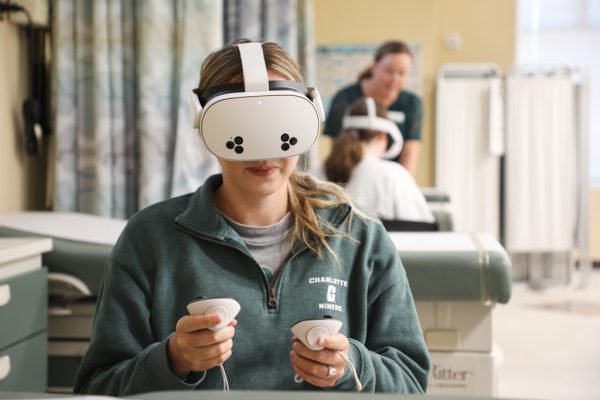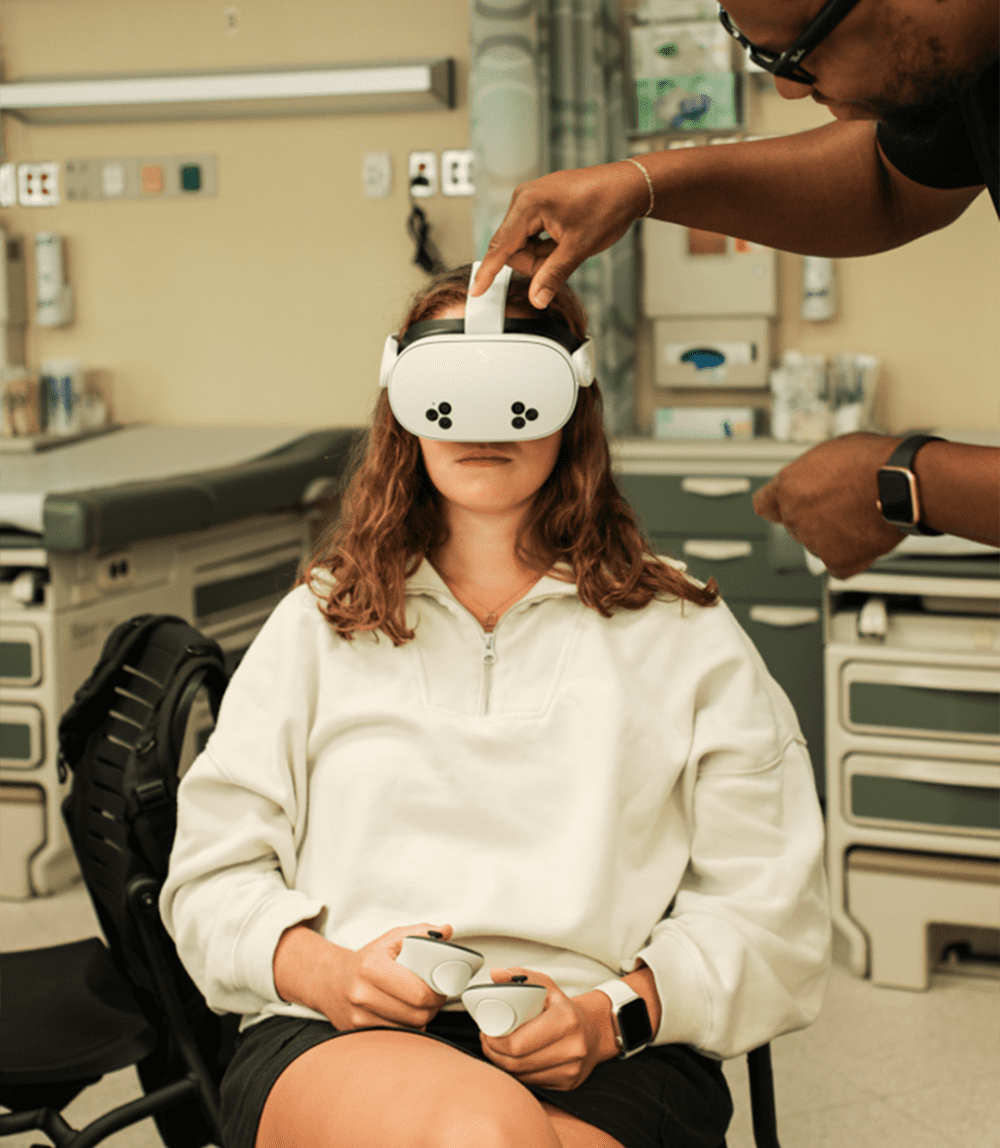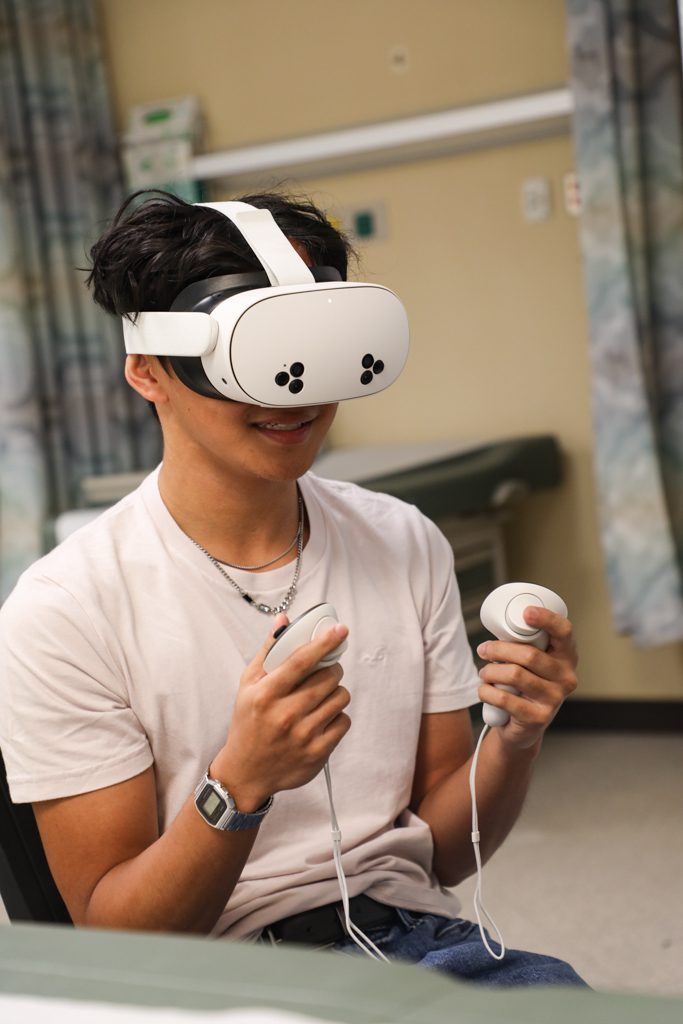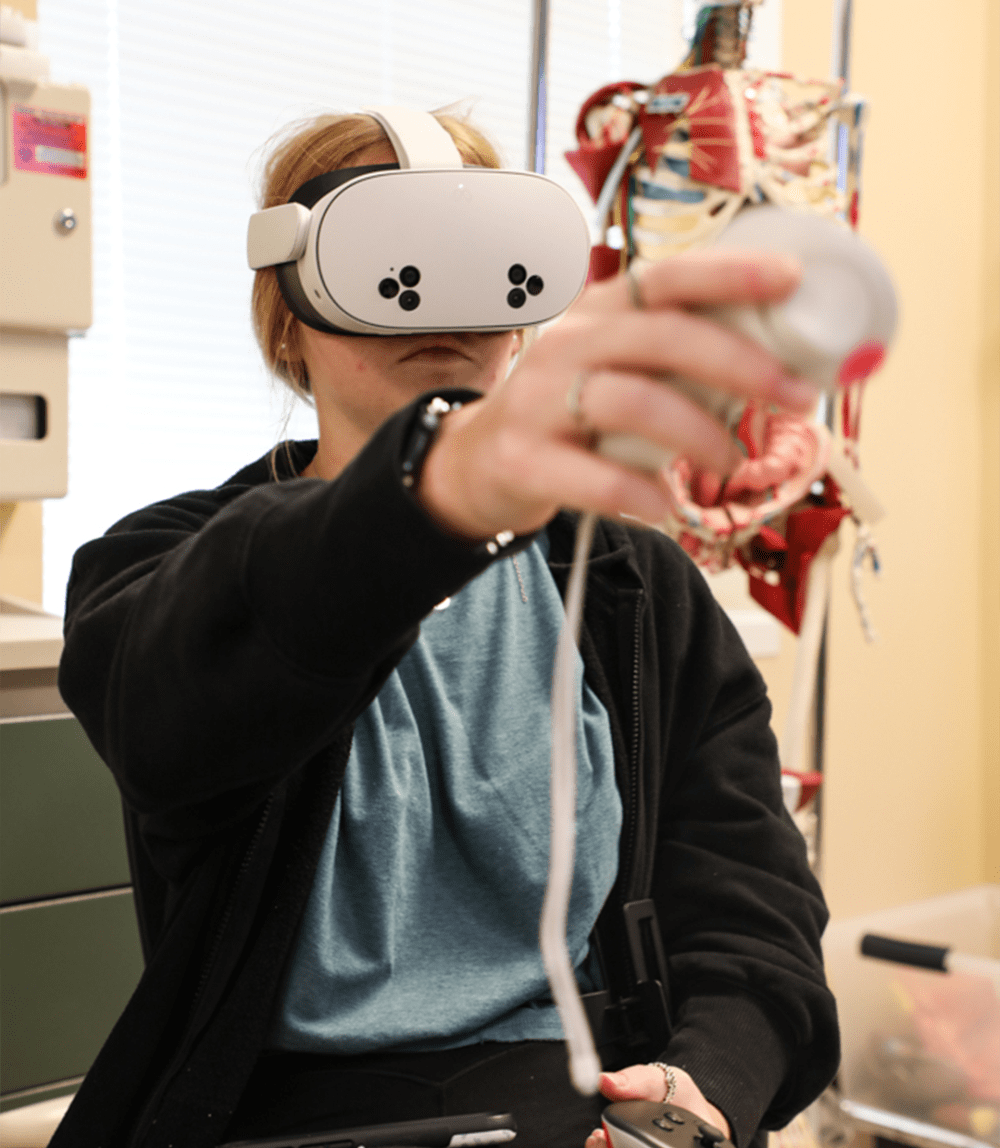Transforming Nursing Education: Virtual Reality Arrives at UNC Charlotte’s School of Nursing

by Isaiah Griffin
This year, the UNC Charlotte School of Nursing is excited to introduce new virtual reality (VR) technology that is transforming the way students learn and prepare for their nursing careers. With VR, students can practice clinical skills in an immersive, safe environment that fosters critical thinking and teamwork. This advancement enhances both classroom and simulation experiences, better preparing our students for an evolving healthcare profession.
To create a more engaging learning environment, the simulation team implemented the virtual reality platform BodySwaps at the start of the semester. BodySwaps is a VR application designed to help students strengthen essential “soft skills,” a critical component of providing patient-centered care. A key feature of the platform is the “body swap” function, which allows students to observe their own performance from the perspective of the virtual patient they are caring for. This not only improves learning, but also encourages self-reflection, helping future nurses understand the impact of communication on patient experiences.
According to the School of Nursing’s Simulation Operations Manager, Ashton Atmore, MS Ed,
“The introduction of VR puts our students in a completely different stratosphere. Now they have a full range of experiential learning opportunities that will help them provide more in-depth, patient-centered care.”
In July 2024, the School of Nursing announced it had received over $2.4 million from the UNC System Office to support the expansion of educational spaces, acquisition of new technology, and the launch of the accelerated BSN (ABSN) option.
Reflecting on her experience with the VR technology, Maya Connor, a member of UNC Charlotte’s first ABSN cohort, shared:
“The VR was good! I felt that it provided adequate learning for a visual learner. Even if you’re not tech-savvy, it’s beginner-friendly. I think it can be very informative, and it still gives you patient and population interaction without even touching anyone.”
Connor has previous experience using VR in the classroom and finds it especially beneficial for visual and interactive learners.
Through BodySwaps, students gain practice in conducting difficult conversations with patients and their families, strengthening interprofessional communication, and applying clinical tools such as the SBAR (Situation, Background, Assessment, Recommendation) framework. The platform also supports faculty in addressing competency-based education requirements outlined in frameworks like the American Association of Colleges of Nursing (AACN) Essentials, which emphasize behavioral skills alongside knowledge acquisition.
This cutting-edge tool makes nursing education more engaging while ensuring our NinerNurses are prepared to deliver high-quality care in real-world settings. Looking ahead, the School of Nursing plans to introduce additional immersive platforms that incorporate technologies such as artificial intelligence (AI) to create realistic clinical scenarios. Charlotte’s School of Nursing will also utilize analytics to measure the impact of these tools, track learning outcomes, and ensure students are fully prepared for clinical practice.


